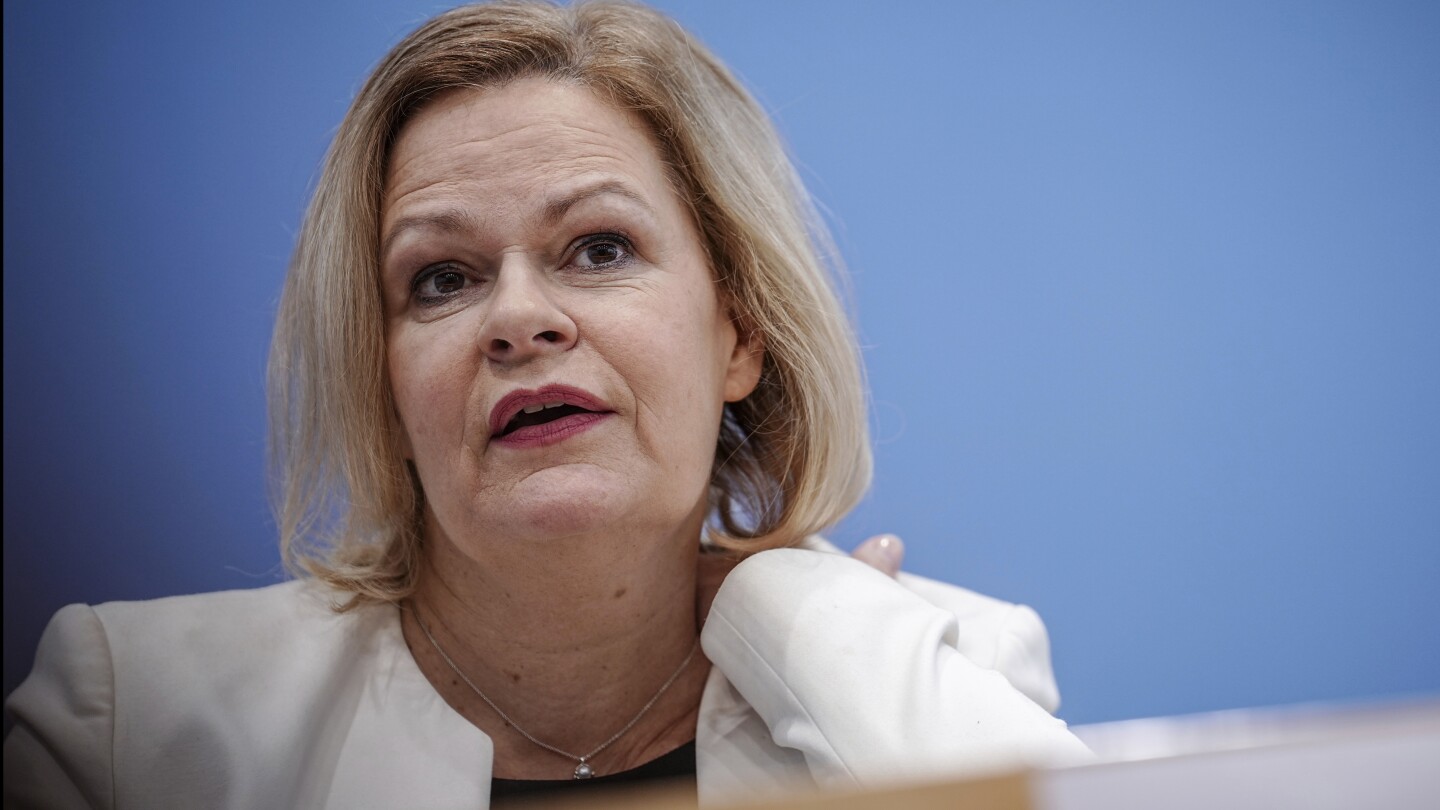BERLIN (AP) — Germany’s top security official said Tuesday that she aims to make it easier to trace right-wing extremists’ financing and plans to set up an “early recognition unit” to detect far-right and foreign disinformation campaigns as early as possible.
Interior Minister Nancy Faeser’s proposals follow large protests against the far right in Germany in recent weeks. They reflect growing concern after a report said extremists met to discuss deporting millions of immigrants, including some with German citizenship, and that some members of the far-right Alternative for Germany party, whose support has doubled since the country’s 2021 election, were present.
Germany’s domestic intelligence agency says the number of far-right extremists has been rising. In 2022, it reached 38,800, with 14,000 of them considered potentially violent. The agency’s head, Thomas Haldenwang, said the numbers are believed to have risen again last year.
Faeser said efforts to shut down extremists’ financing have been hampered because financial investigations are limited to “inciting and violence-oriented” movements. She suggested that the law be changed to make a group’s “threat potential” grounds for such investigations, and the proceedings should be faster and less bureaucratic.
“No one who donates to a right-wing extremist organization should be able to rely on remaining undiscovered,” she said.
Faeser added that she’s working with regional authorities on preventing right-wing extremists from entering or leaving the country.
“German right-wing extremists and foreign autocrats have one thing in common: They want to stoke rage and divide, above all through disinformation,” Faeser said.
She pointed to fake accounts and, increasingly, AI-generated photos and videos as a problem.
The “early recognition unit,” based at the Interior Ministry, should start work “hopefully in a few months,” she said, stressing the importance of catching manipulation and influence campaigns early.

